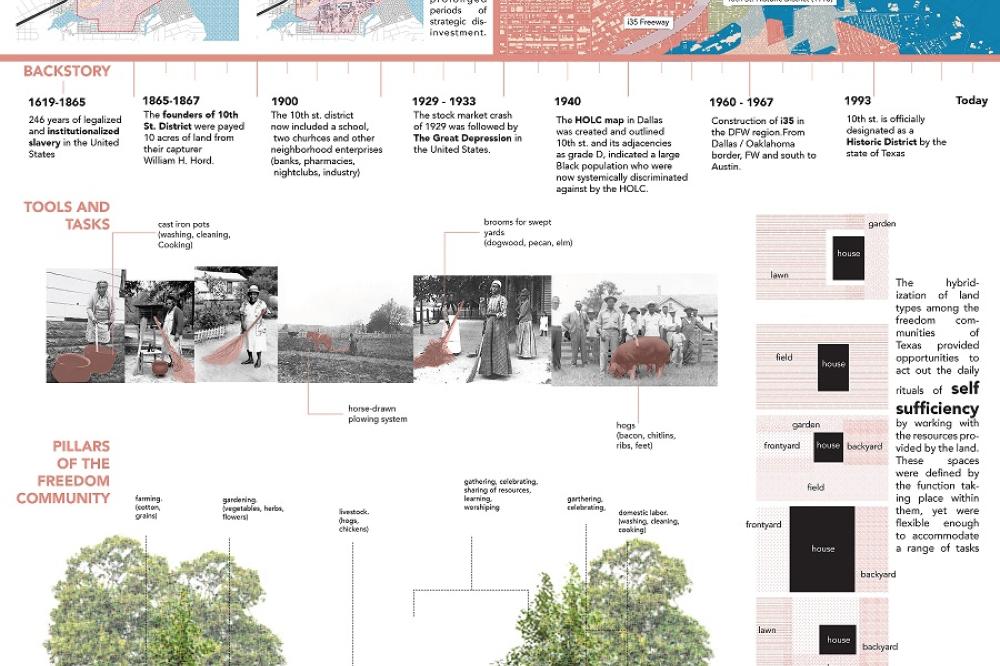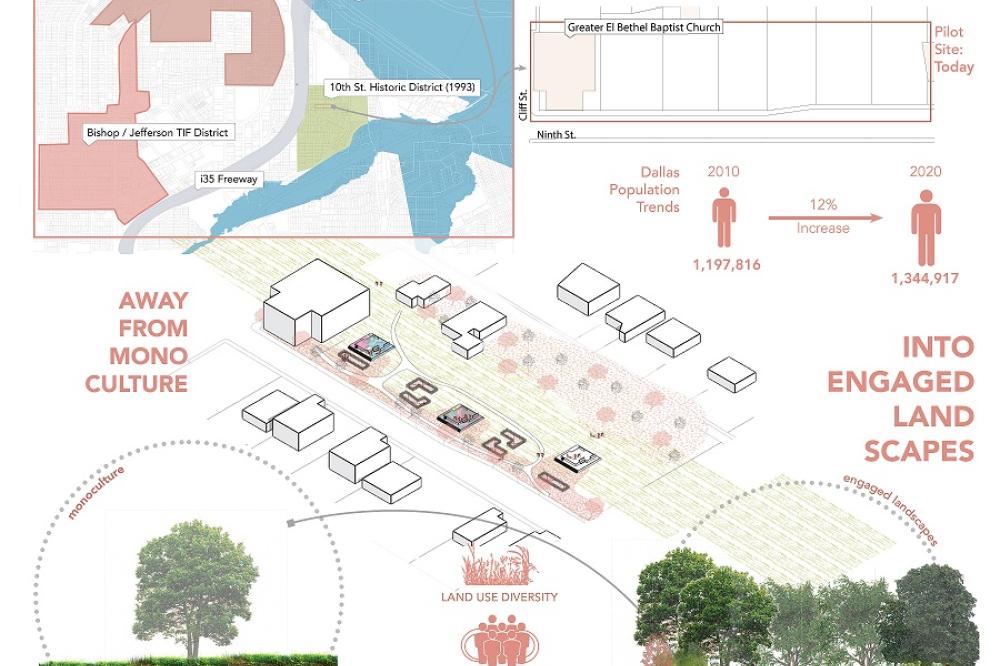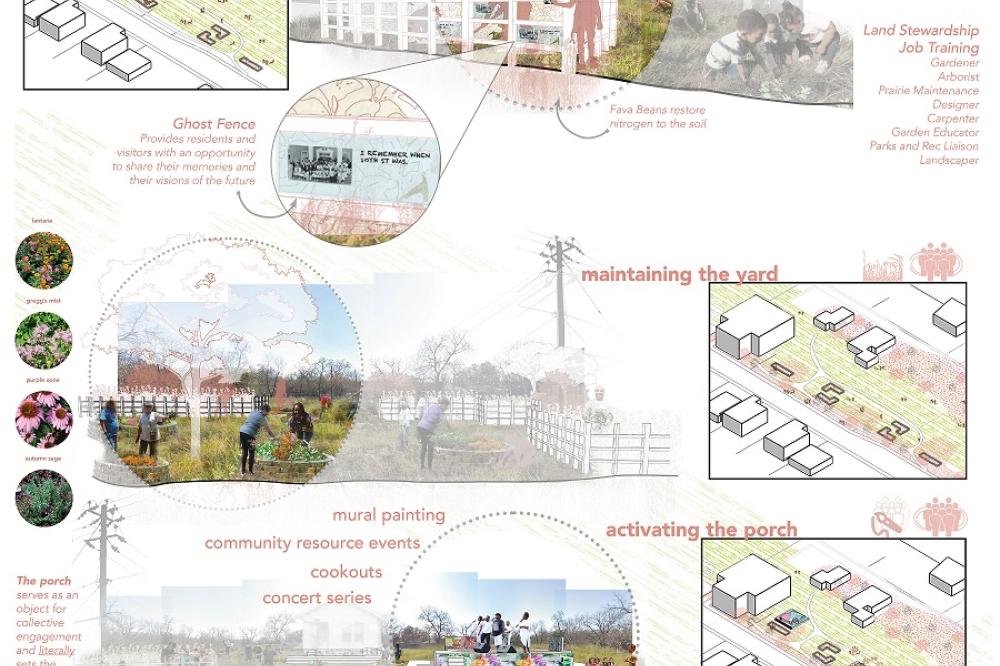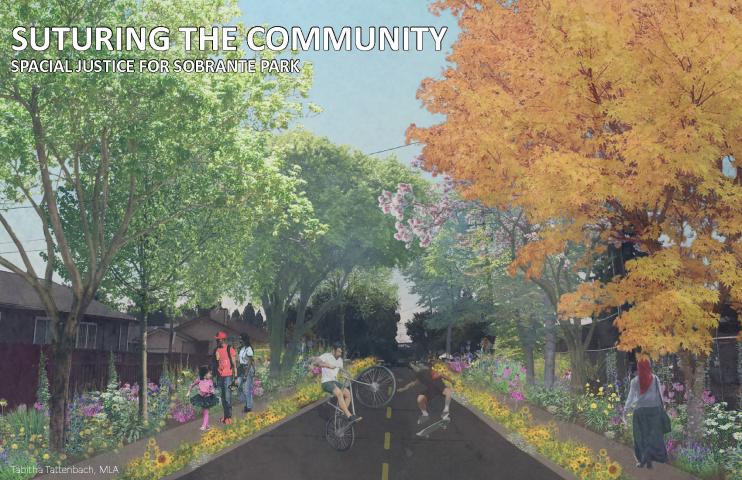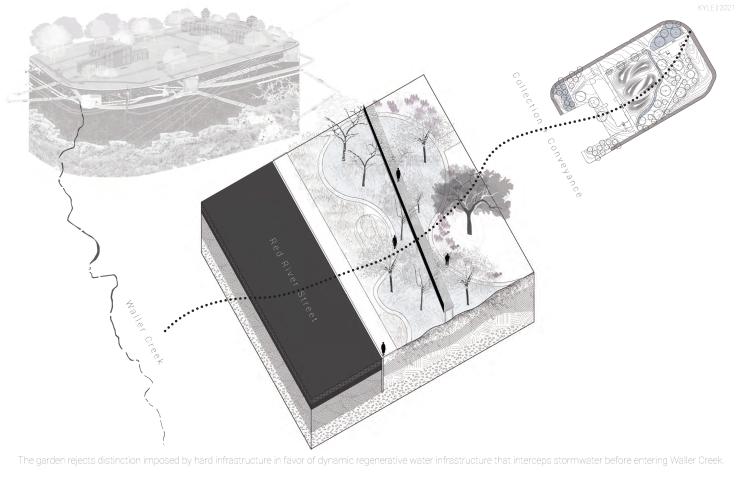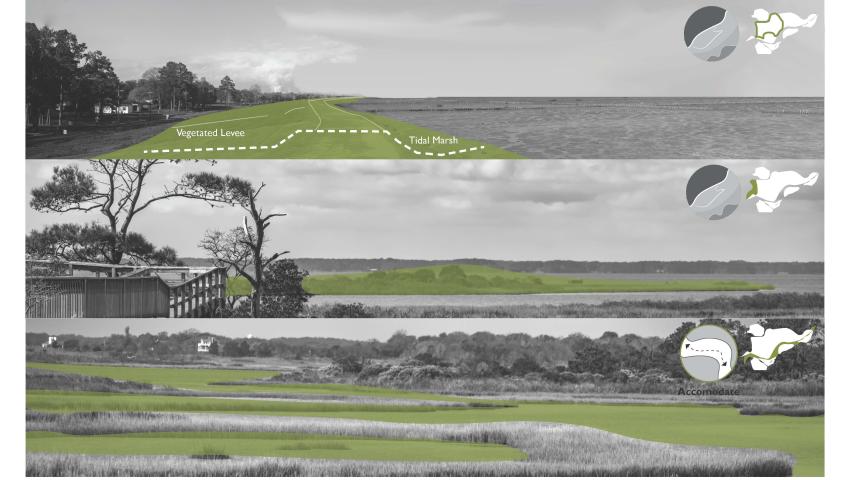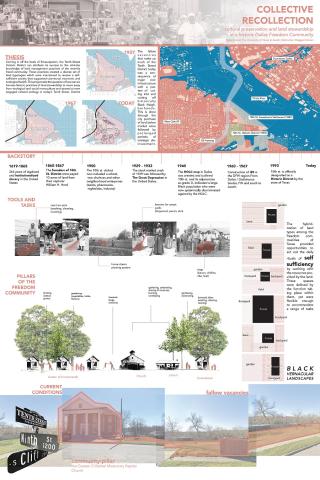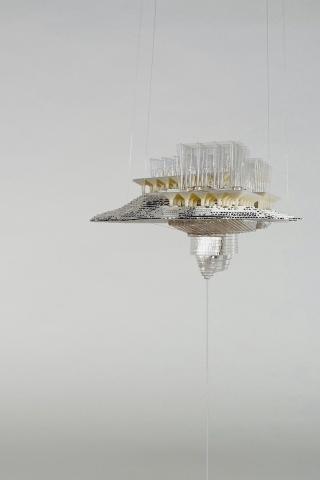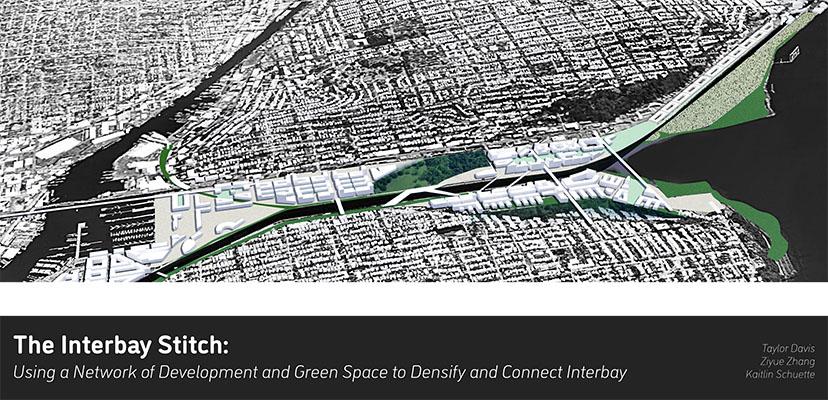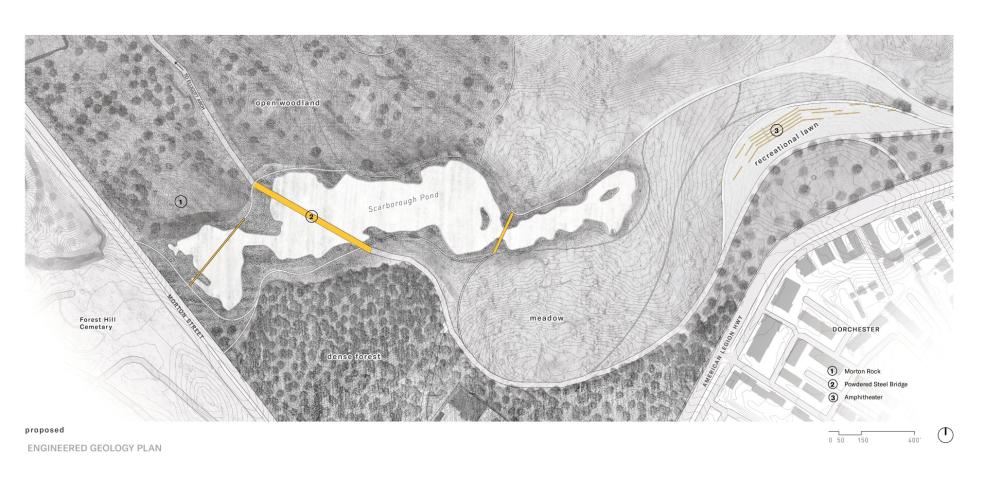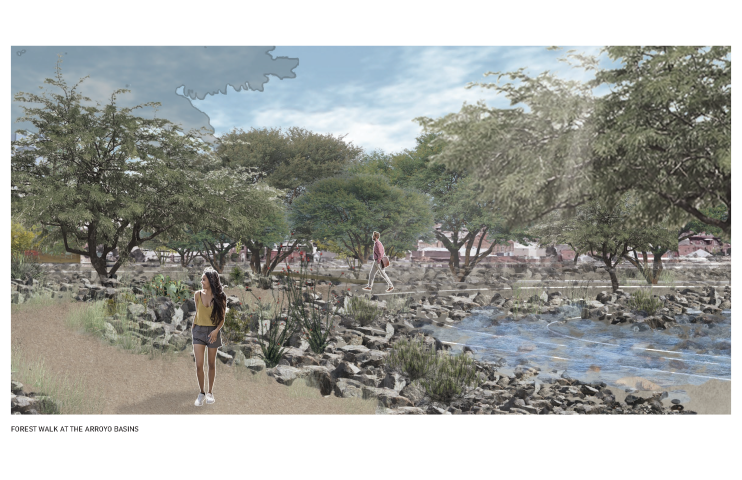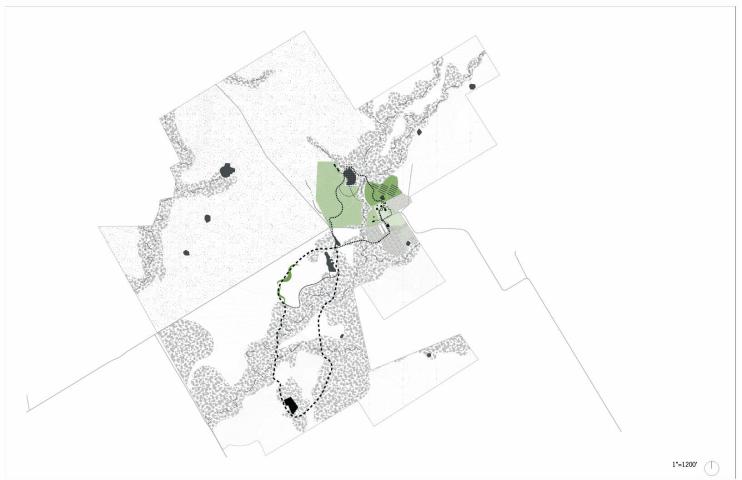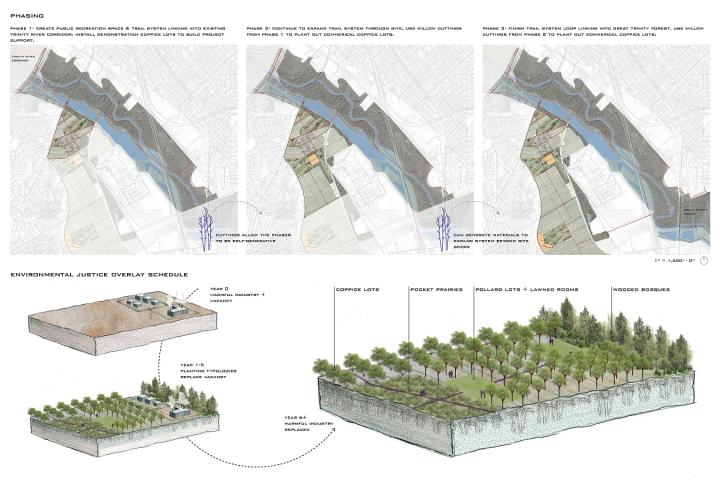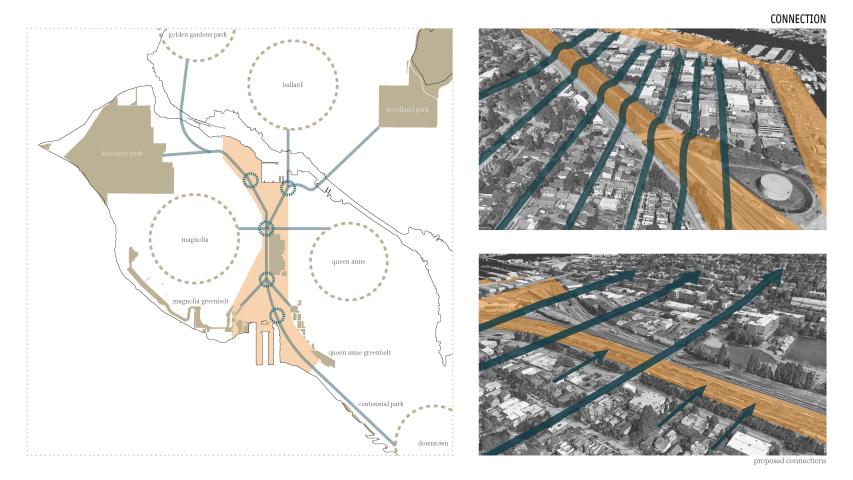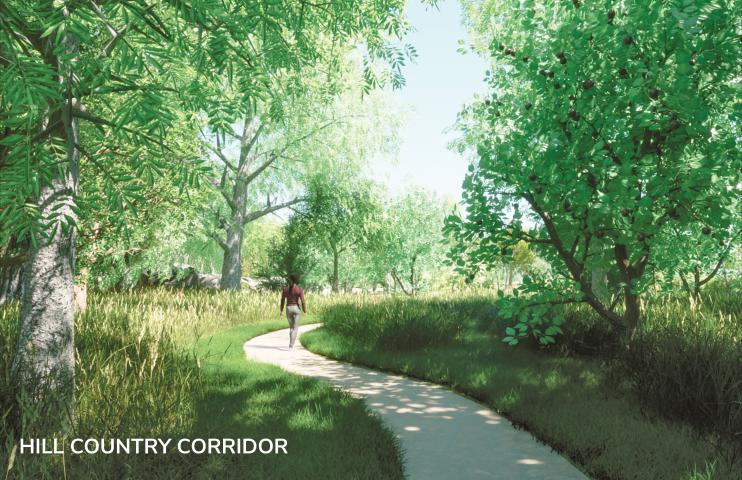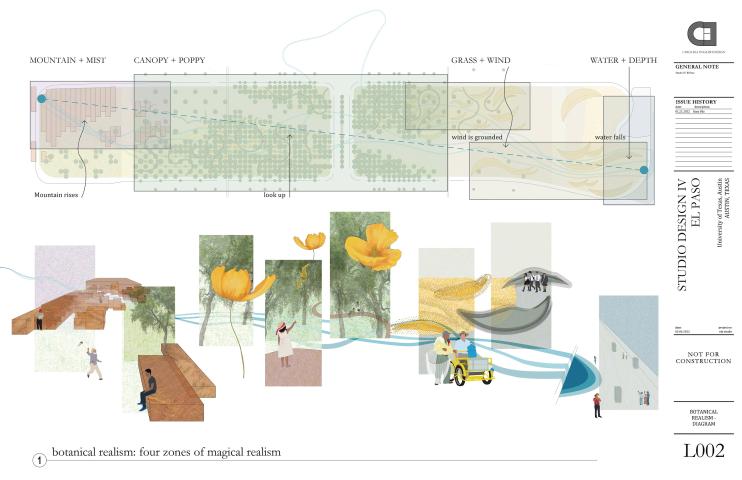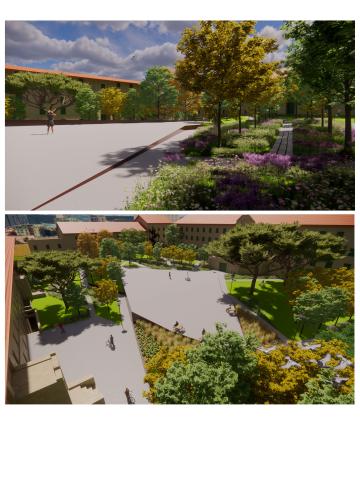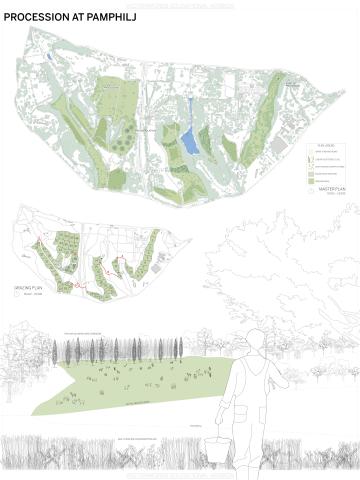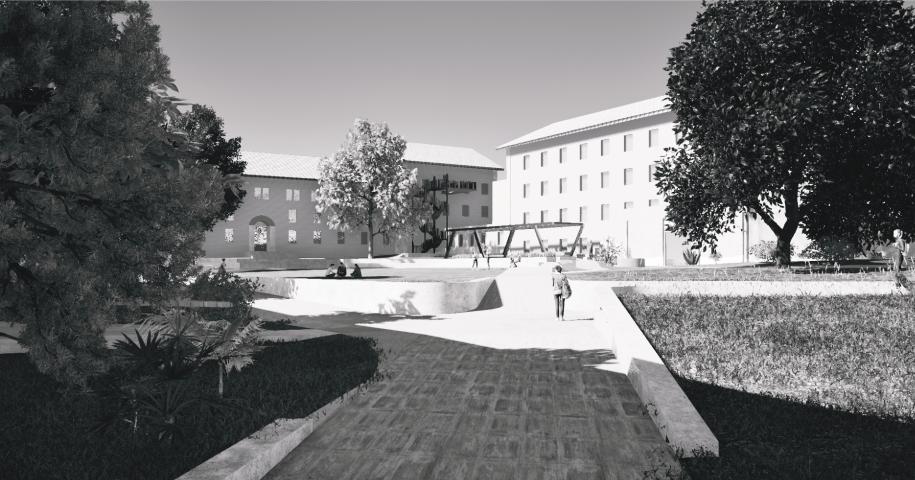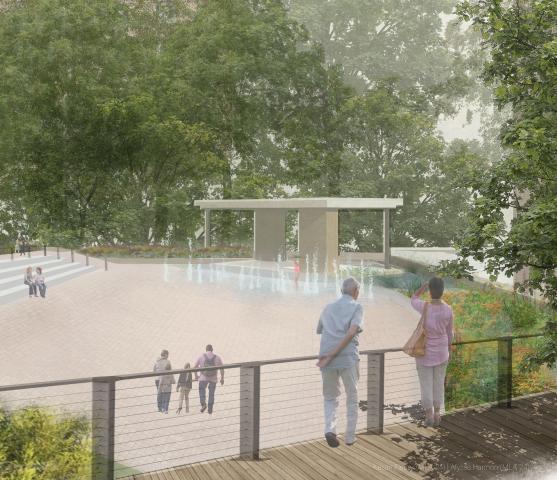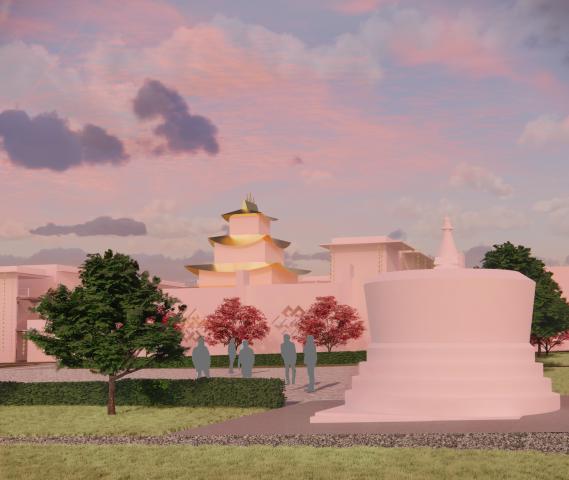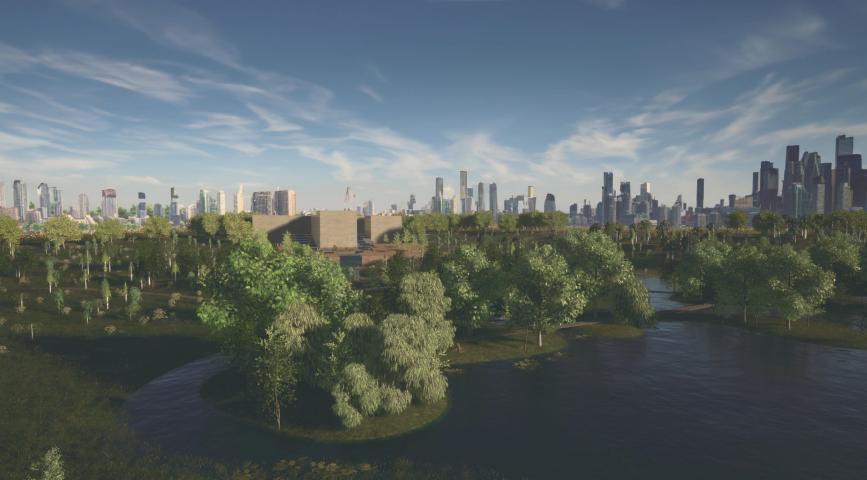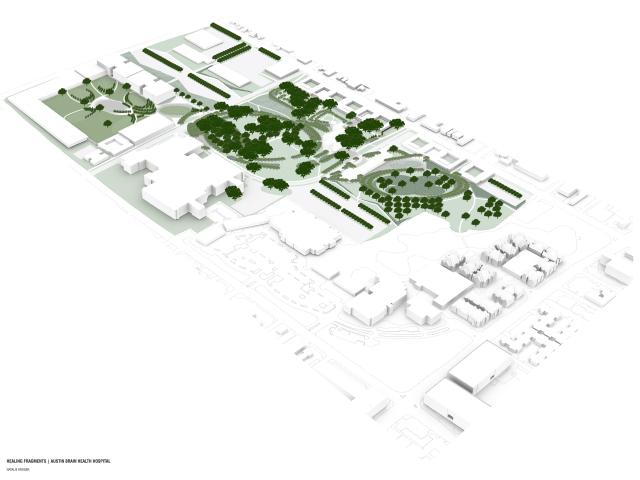STUDIO DESCRIPTION
Dallas grew a metropolis from the fertile Blackland Prairie and intersection of long-established trade routes. Like many cities, its history is bound up in slavery, then segregation, and decades of structural inequality – much of which continues today. These historical relationships of power, nature, and labor continue to influence urban life. How might design support recovery of our interconnection with natural systems and revalue the labors of care that build and maintain the city? By changing the actions of maintenance, can we also change what stories we tell about the city?
The studio's focus is on envisioning practices that make and unmake landscape space. The studio will articulate the actions of caring for the city, grounded in Dallas's real social, economic and spatial context. Our design work will offer realistic strategies that might engage a range of skills and expertise – "green jobs" that reimagine our relationships with the land and with each other. With an emphasis on proactive care practices, we will scale up to envision prototypes that go beyond established models of sustainability and resilience. By considering how these practices might have impacts citywide, we will propose changes to existing policies and practices and test our ideas by visualizing change over time.
The project seeks to replicate prior self-sufficiency by supporting daily rituals of working the land. The proposed solution achieves this through the hybridization of land typologies commonly found among the freedom communities of Texas. Shape and form reflect primary functions while accommodating flexibility for a multiplicity of social and ecological tasks. Mixing such actions as sweeping the prairie, growing the garden, maintaining the yard, and activating the porch work toward achieving the ultimate goal of moving away from monocultures. An engaged landscape is one that creates jobs, seeks justice, and sequesters carbon.
JURY COMMENTS
Design work surpassing expectations in terms of ambition, pursuit, grasp, and resolution achieves design excellence. The jury recognizes student work that critically challenges disciplinary frameworks and applies scholarly knowledge. A project awarded design excellence is complete on all levels, including inventiveness, appropriateness, conceptual rigor, technical development, and craft.
The jury applauds the depth of cultural landscape research and history alongside a keen vision for placemaking and community-building. The analysis of landscape practices in Freedman's communities as a tool of future self-sufficiency is particularly insightful. Building from this research, the project recovers collective acts of land stewardship and engages current neighborhood anchors as a strategy for addressing fallow land in this specific historic black community. The proposal uses art and garden-based activities to strengthen social connections alongside the physical rebuilding of the neighborhood. The strategy builds on past community visions for the site and the deep history of these sites while proposing a landscape-based model supporting reinvestment in similar historic Black communities.
Spring 2021 Design Excellence Award Winner
Taylor Davis
Landscape Architecture Advanced Design Studio
Instructor: Maggie Hansen

